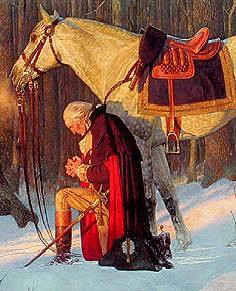The chain reaction was something out of central casting. A medical journal starts it off by announcing a study comparing teens who take a pledge of virginity until marriage with those who don't. Lo and behold, when they crunch the numbers, they find not much difference between pledgers and nonpledgers: most do not make it to the marriage bed as virgins.
Like a pack of randy 15-year-old boys, the press dives right in.
"Virginity Pledges Don't Stop Teen Sex," screams CBS News. "Virginity pledges don't mean much," adds CNN. "Study questions virginity pledges," says the Chicago Tribune. "Premarital Abstinence Pledges Ineffective, Study Finds," heralds the Washington Post. "Virginity Pledges Fail to Trump Teen Lust in Look at Older Data," reports Bloomberg. And on it goes.
In other words, teens will be teens, and moms or dads who believe that concepts such as restraint or morality have any application today are living in a dream world. Typical was the lead for the CBS News story: "Teenagers who take virginity pledges are no less sexually active than other teens, according to a new study."
Here's the rub: It just isn't true.
In fact, the only way the study's author, Janet Elise Rosenbaum of Johns Hopkins University, could reach such results was by comparing teens who take a virginity pledge with a very small subset of other teens: those who are just as religious and conservative as the pledge-takers. The study is called "Patient Teenagers? A Comparison of the Sexual Behavior of Virginity Pledgers and Matched Nonpledgers," and it was published in the Jan. 1 edition of Pediatrics.
So, in other words, in order to come to the desired pre-formed conclusion, the data had to be cherry picked. It seems to me that a more accurate statement would be that teens with religious and conservative values are less likely to engage in teenage sex regardless of whether or not they take a formal virginity pledge.
It's quite clear from the recent barrage of articles based on the report referenced in the article that the goal was to diminish the value of virgiity pledges. However, the only way that the author was able to do so, was to first assume that only religious or conservative teens would actually make a virginity pledge.
What Dr. Healy was getting at is that the pledge itself is not what distinguishes these kids from most other teenagers. The real difference is their more conservative and religious home and social environment. As she notes, when you compare both groups in this study with teens at large, the behavioral differences are striking. Here are just a few:
- These teens generally have less risky sex, i.e., fewer sexual partners.
- These teens are less likely to have a teenage pregnancy, or to have friends who use drugs.
- These teens have less premarital vaginal sex.
- When these teens lose their virginity they tend to do so at age 21 -- compared to 17 for the typical American teen.
- And very much overlooked, one out of four of these teens do in fact keep the pledge to remain chaste -- amid much cheap ridicule and just about zero support outside their homes or churches.
Let's put this another way. The real headline from this study is this: "Religious Teens Differ Little in Sexual Behavior Whether or Not They Take a Pledge."


No comments:
Post a Comment